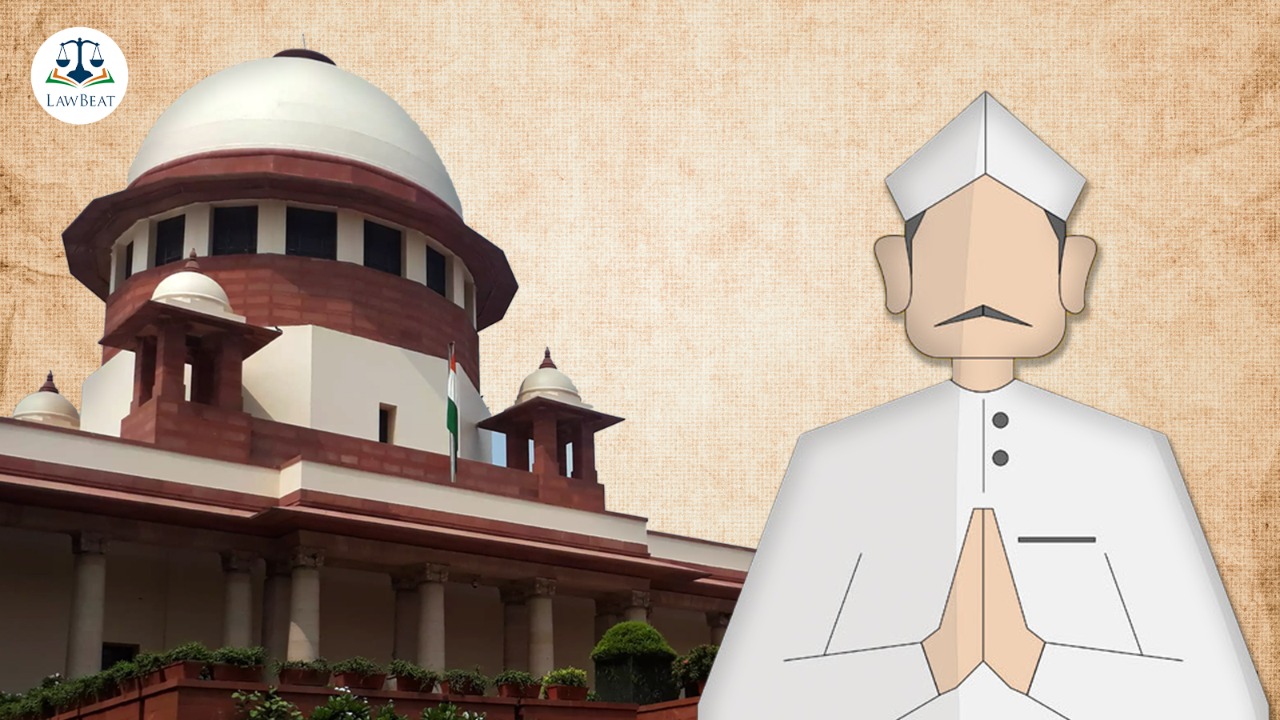"More and more persons with criminal antecedents occupying seats in Parliament and State Assemblies," Amicus Vinay Hansaria informs Supreme Court

Supreme Court on Wednesday agreed to list plea seeking directions to the Centre for taking necessary steps to debar candidates charged with criminal offenses from contesting elections, forming a political party, or becoming office-bearers of any party over urgent mentioning.
A bench of Chief Justice NV Ramana, Justice and Justice Hima Kohli agreed to list the matter after urgent mentioning by Amicus Curie Sr. Adv. Vinay Hansaria.
Hansaria while mentioning the matter informed the bench that the 16th Report over the issue has been filed, and that an urgent listing is required.
The report has stated that as many as 4984 cases are pending out of which 1899 cases are more than 5 years old. In addition to this, the total number of cases pending as of December 2018 was 4110, and as of October 2020 was 4859. Even after the disposal of 2775 cases after December 4, 2018, the cases against MPs/MLAs have increased from 4122 to 4984.
In reference to this, Hansari mentioned in its report that, "This shows that more and more persons with criminal antecedents are occupying the seats in the Parliament and the State Legislative Assemblies. It is of utmost necessity that urgent and stringent steps are taken for expeditious disposal of pending criminal cases."
Hansaria in its report has sought that all the Courts trying cases against MPs/MLAs are equipped with the necessary infrastructure for the conduct of court proceedings through internet facilities.
In addition to this Hansaria has sought the following directions:
- The Courts dealing with cases against MPs/MLAs will exclusively try these cases. Other cases would be taken up only after trials of such cases are over. The trial would be conducted on a day to day basis in terms of Section 309 Cr.P.C. Necessary allocation of work would be made by the High Court and/or the Principal Sessions Judges of every district within two weeks.
- Both the prosecution and defence shall cooperate with the trial of the case and no adjournment shall be granted. In case, the public prosecutor and/or the prosecution fail to co-operate in the expeditious trial, the matter shall be reported to the Chief Secretary of the State who will take necessary remedial measures. In case, the accused delays the trial, his bail shall be cancelled.
- The trial court shall send a report on each of the cases where trial has been pending for more than five years before the respective High Courts, as to the reasons for delay and suggest remedial measures. The High Court shall consider these reports on the judicial side in the suo motu writ petitions registered in terms of para 18 of the order dated 16.09.2020 and pass appropriate orders to remove the stagnation of trial.
- The Central Government will provide funds for ensuring smooth functioning of Courts through virtual mode i.e. by facilitating availability of video conference facilities. The High Courts shall submit a proposal to the Law Secretary of the Government of India in this regard as to the funds required, which shall be made available by the Central Government within two weeks of the proposal. The funds so released by the Central Government will be subject to final adjustment with the State Government as per sharing pattern.
- A Monitoring Committee may be constituted, headed by a former Judge of the Supreme Court or Chief Justice of a High Court to monitor the investigation of cases pending before the Enforcement Directorate, Central Bureau of Investigation and National Investigation Agency in terms of submission recorded in the order dated 25.08.2021.
- The trial courts may be directed to pass a specific order in all pending cases that the benefit of the Witness Protection Scheme 2018, has been made available to the witnesses in terms of the order dated 04.11.2020.
Background
By order dated Aug 11, 2021, the Court had laid down a format by which Registrar Generals of all High Courts were directed to furnish information under the following heads –
(i) Name of the Judge, (ii) Place of Posting, (iii) Date of Posting, (iv) No. of days/years in the given posting, (v) Number of cases disposed during the current posting, (vi) Number of pending cases before him/her, (vii) Stage of Pending Cases, (viii) Details of Orders/Judgments reserved, (ix) Whether Video conferencing facility is available.
Sr. Advocate and Amicus, Mr. Vijay Hansaria filed his 13th report in the matter on Aug 9, 2021, highlighting various factors that require consideration in determining pendency of cases against MP/MLAs.
Issues flagged by the report were:
- Misuse of the Prosecutor’s power to withdraw cases under Section 321, CrPC.
- Continuity of tenure of Judicial Officers
- Jurisdiction of Special Court (M.P./M.L.A.) to try cases against legislators elected from other States
- Jurisdiction of Special Courts with respect to cases triable by Magistrates (V) Trial of cases where an M.P./M.L.A. is the complainant
- Safe and secure witness examination facility
By order dated August 10, Court had directed that no prosecution against a sitting or former MP/MLA shall be withdrawn without the leave of the High Court.
Recently, the Registrar General of Kerala High Court has filed an affidavit stating that – till Jul 31, 2021, there are a total of 547 criminal cases against MP/MLAs pending before various courts in Kerala.
The Status Report submitted by Central Government says that there are 51 cases pending against Member of Parliament and 71 cases against Members of Legislative Assembly arising out of the Prevention of Money Laundering Act.
Whereas, as per the report, 121 cases are pending trial before the Special Courts, CBI, and
as many as 58 cases are punishable with life imprisonment.
Cause Title: Ashwini Kumar Upadhyay vs Union of India
